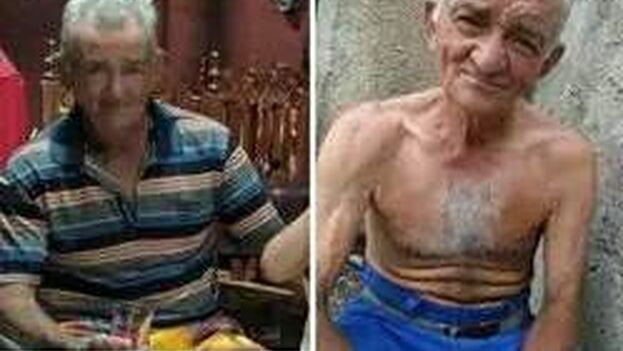
![]() 14ymedio, Havana, 21 December 2022 — Osvaldo, an old man who made a living transporting people in a wagon, was allegedly killed on Sunday for his horse in the municipality of Encrucijada, Villa Clara. His death generated a wave of indignation among his relatives, who remembered the Colonel, as he was known, as a humble man willing to help the neighbors.
14ymedio, Havana, 21 December 2022 — Osvaldo, an old man who made a living transporting people in a wagon, was allegedly killed on Sunday for his horse in the municipality of Encrucijada, Villa Clara. His death generated a wave of indignation among his relatives, who remembered the Colonel, as he was known, as a humble man willing to help the neighbors.
The crime, of which the authorities have not offered an official version, was reported on social networks. His family and friends reported his disappearance after not returning from a trip he had scheduled for Sunday morning. On the night of that same day, several Facebook users reported the discovery of his body in a cane field, beheaded and with one hand cut off, while the wagon and the horse were stolen.
“Who did this barbarity of killing a poor old man has to pay for it. I ask everyone who saw something, please let me know,” a user identified as Reinaldo Rodríguez Velásquez wrote on Facebook. Several commentators said that the Colonel’s family alerted the Police about his disappearance, but the officers did not take the case seriously because 72 hours had not yet passed.
Osvaldo, whose surnames aren’t yet known, was described as “a humble man, good neighbor and friend of all,” by the user Ana Laura Bacallo, who claimed to know the victim from a young age. “All the memories I have of him are how he helped neighbors, and he never had problems with anyone,” she added.
The violent theft of animals in Cuban fields has been increasing over the last two years. A report published in this newspaper last July set out the methods of thieves to steal livestock, small and large, on private farms.
The criminals study the place and the owners of the animals well, and make use of different pain killers to tranquilize oxen, cows and pigs, which they then transport in wagons or dismember in the same place. The situation is increasingly common in Villa Clara and other provinces of central Cuba, where, in addition to animals being used in agricultural work, they serve as a means of transport in cities.
In the absence of an efficient urban transport system, cities such as Santa Clara, Remedios and Encrucijada depend on wagons or cars towed by horses. While it is true that they alleviate the lack of buses and electric motorcycles, they engender a significant amount of dirt, accidents and animal abuse.
Often, horses used for transportation must carry several times their weight under the whip of the coachmen. The situation becomes even more regrettable during the summer months, when animals tend to faint from fatigue and dehydration. Carers usually keep their animals in improvised stables in their own homes or on the outskirts of cities. It is common that violent robberies also occur there, with the aim of taking the horse, which they transport to another municipality or province so as not to be recognized, or kill it for food.
Cuba is facing a growing wave of violence, unleashed in part by the deep economic crisis on the Island. Last July, Santiago Morgado, a professor in Sancti Spíritus, was killed with the aim of stealing a motorcycle that the murderers later tried to sell for the price of 200,000 pesos. The official newspaper Escambray revealed that five individuals had been involved in Morgado’s death. The 62-year-old man was found several days after his death in a well where his perpetrators had thrown him.
Translated by Regina Anavy
____________
COLLABORATE WITH OUR WORK: The 14ymedio team is committed to practicing serious journalism that reflects Cuba’s reality in all its depth. Thank you for joining us on this long journey. We invite you to continue supporting us by becoming a member of 14ymedio now. Together we can continue transforming journalism in Cuba.
